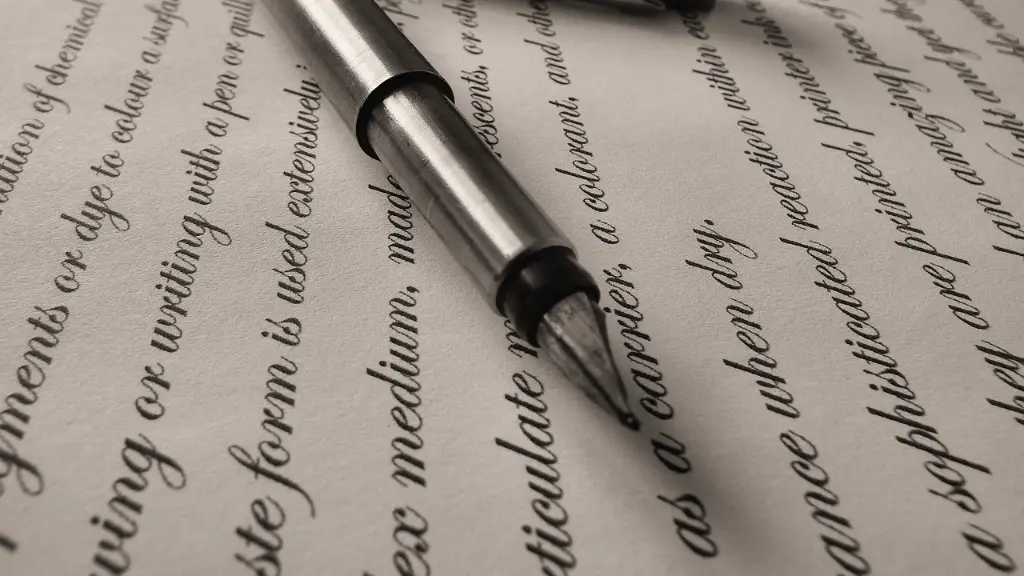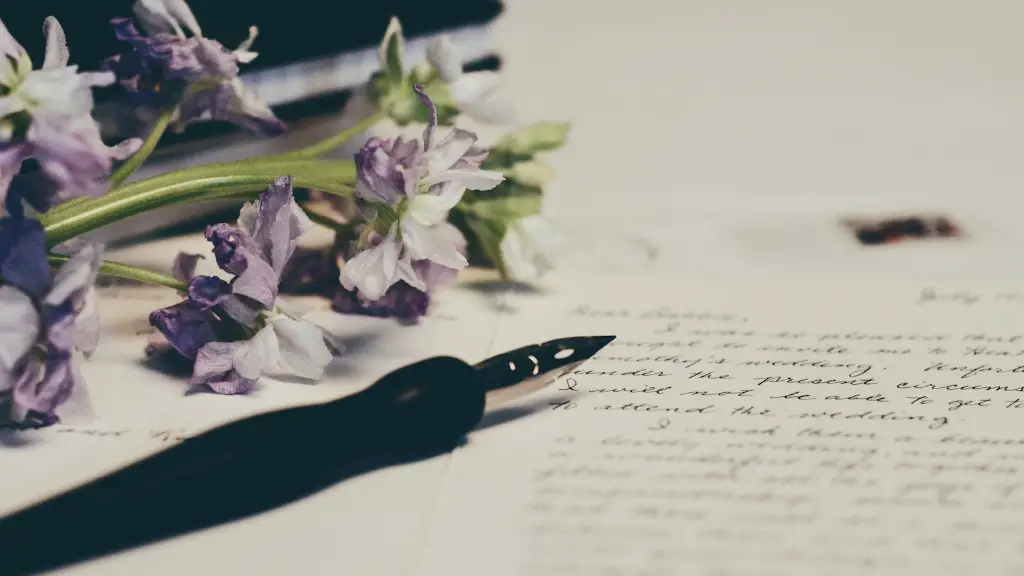Hyperbole is a literary device and literary technique used by writers in the English language to emphasize a certain feeling and emotion in their writing. It is a way of expressing something in an exaggerated way, and is often used for poetic purposes. Hyperbole is an important part of poetic technique, as it allows poets to create powerful images that help to convey their meaning and express emotion. As a result, this form of figurative language is commonly used in poem and songs and other forms of poetry.
Hyperbole is one of the most frequently used devices in poetry and addressed to revealing the truth in a poetic or figurative language. It goes beyond sensible literalism to allow speakers to move beyond the ordinary, ordinary language. The use of extreme exaggeration and unreality can without difficulty lead to exaggeration and even distortion, and carry the implications that the statement is meant to be taken as false. Through hyperbole, a poet can create vivid scenes and scenarios, as well as elicit strong emotions from the reader.
A poet could use hyperbole to draw attention to a certain character trait or emotion, such as, “My love for you is like an ocean” or “You are my sunshine.” In these examples of hyperbole, it’s clear that the poet is not actually comparing the subject of their love to an ocean, nor are they literally claiming that the other person is their source of sunshine. Rather, the poet is attempting to convey a powerfully deep feeling by exaggerating the language. This technique is often used to emphasize the magnitude of the sentiment or emotion being expressed.
Hyperbole in poetry can also be used to communicate a specific message. This type of hyperbole often relies on irony. Irony is when the opposite of what is expected occurs, or when two opposing concepts clash together. For example, a poet may use hyperbole to emphasize the negative effects of an action, such as, “The traffic was so bad I almost died!” while the truthfulness or accuracy of the statement is not necessarily expected, the exaggeration is highlighting the difficulties of the situation.
Not only can hyperbole increase the artistic value of a piece but it can also be used to embody values, beliefs and customs in popular culture. Working in parallel with a poem’s literal meaning, hyperbole supplies figurative meanings with a metaphorical understanding. In some cases, it is used as a tool for satire to offer commentary on a particular social problem. For example, a poet may use hyperbole to express their disdain for a certain political situation, such as “The government is a cancer on our society.”
Hyperbole.. is a powerful tool for poets. Not only does it allow them to create vivid images and evoke emotions, but it can also be used to express a speaker’s beliefs, values, and opinions. It is a versatile device that enables a poet to use language beyond ordinary, literal speech.
EffectsofHyperbole
The main purpose of usinghyperbole in poems is to emphasize and make a point more effectively. As of this, this device can be used to emphasize both positive and negative connotations. In a positive context, hyperbole can be used to enhance a feeling or emotion by exaggerating. When used in a negative context, hyperbole can be used to make a point stronger by exaggerating the negative connotation of something.
Hyperbole can also be used to make a point more succinctly by summarizing a long explanation in one sentence. When used this way, it can be particularly helpful in writing because it is easier to read and comprehend short sentences than longer ones. Additionally, hyperbole requires fewer words and is therefore faster to write.
For many that have encountered and studied the use of hyperbole inpoetry, it is easy to notice the strong effect it has on readers.Hyperbole has the ability to lift a story off the page as the readers get caught up in the imaginative worlds created. Moreover, it can be used to add humor to a poem or story while also creating an ironic and pointed version of reality.
Consequently, hyperbole can bring an emotional impression to a piece of poetry by illustrating an atmosphere and vibe to invoke in readers. It is the reason why, almost all famous poets of all times have demonstrated the use of hyperbole in their works. Besides, with the use of hyperbole, poets usually input personal experiences, thoughts and musings to poetry, making a poem all the more intimate.
LimitationsofHyperbole
Hyperbole can also be used in a way that hinders the quality of the writing. While hyperbole is a powerful tool, using it too much can lead to a lack of believability. In addition, since hyperbole is used as an exaggeration of a certain feeling or emotion, it is less effective if the reader does not understand what it is trying to express. Therefore, if the hyperbole is used in an inappropriate context, or if it does not help express the emotions in the most effective way, it can be more distracting, rather than helpful.
Another limitation of hyperbole is that, if used excessively and in an improper context, it can appear insincere to readers. By continually exaggerating feelings and emotions, writers can come across as unoriginal and superficial. In order to be effective, hyperbole needs to be used sparingly and as a way to paint a more realistic picture.
It is also important to note that, although hyperbole can often make a poem more vivid and alive, the task of writing with hyperbole is not an easy one. Hyperbole should not be used just for the sake of it. It needs to be used in an accurate and expressive manner that emphasizes the emotion of the situation. Therefore, it is important to be aware of the limitations that are inherent in using hyperbole in poetry.
HistoryofHyperbole
The literary device hyperbole has been used in one form or another since ancient times. In classical Greek and Roman literature, writers often employed grandiosity or exaggeration to illustrate human accomplishment. Homer, Aeschylus, and Virgil wrote poems that featured iconic figures in heroic battles against difficult odds. Aesop, the ancient author of moral fables, used hyperbole to emphasize moral lessons by exaggerating the consequences of specific behaviors.
In the middle ages, poets and authors utilized hyperbole to provoke emotion in their writing. This style of rhetoric developed over time to become an integral aspect of the English language. Renaissance poets such as William Shakespeare, John Donne, and Edmund Spenser often wrote grandiloquently to emphasize the grandeur of their pieces. Hyperbole was also commonly used in religious texts, both ancient and modern.
In modern times, hyperbole has become one of the most commonly used literary devices, appearing in literature, poetry, and popular culture.In recent decades, its usage has become increasingly adapted to everyday communication. It appears frequently on television, radio, and in popular music to express heightened emotions.
The added use of hyperbole in modern day vernacular has served as a means of artistic expression, often conveying genuine feeling and emotion in language. As such, the use of hyperbole has become intertwined with popular culture today.
QualitiesofHyperbole
When used effectively, hyperbole can help bring liveliness and vivid descriptions to poems. Hyperbole has the capacity to portray the emotion of a scene more clearly, making it easier for readers to enter into the feelings of the poet. It also has the ability to help create a metaphor because it applies terms and descriptions to a situation that are far-fetched or beyond what is true.
Hyperbole is also a great tool for creating suspense and suspenseful stories. When used to its fullest potential, it can create powerful images that help to move a narrative and draw the reader into the story. Hyperbole can be used to express strong emotions, quick and extreme changes, and complex emotions, allowing readers to become emotionally involved.
Moreover, the use of hyperbole can also inspire readers and writers alike. Writers can use hyperbole to evoke new ideas and broaden their horizons, while readers can learn to appreciate and identify hyperbole in literature. Hyperbole can help to further societal understanding and open doors to conversation.
While there are rules and limitations on the use of hyperbole, overall it is a powerful device that can allow a poet to convey their feelings and emotions in a more vivid and impactful manner. By leveraging the ability to use extreme exaggeration, hyperbole enables poets to express their innermost thoughts, feelings, and experiences.




